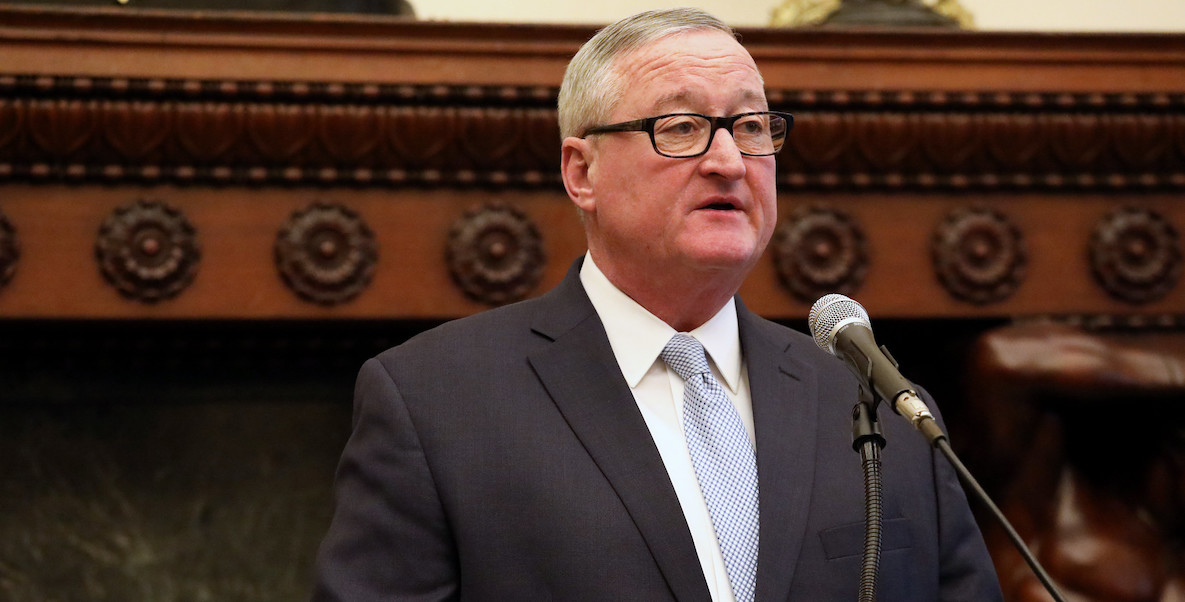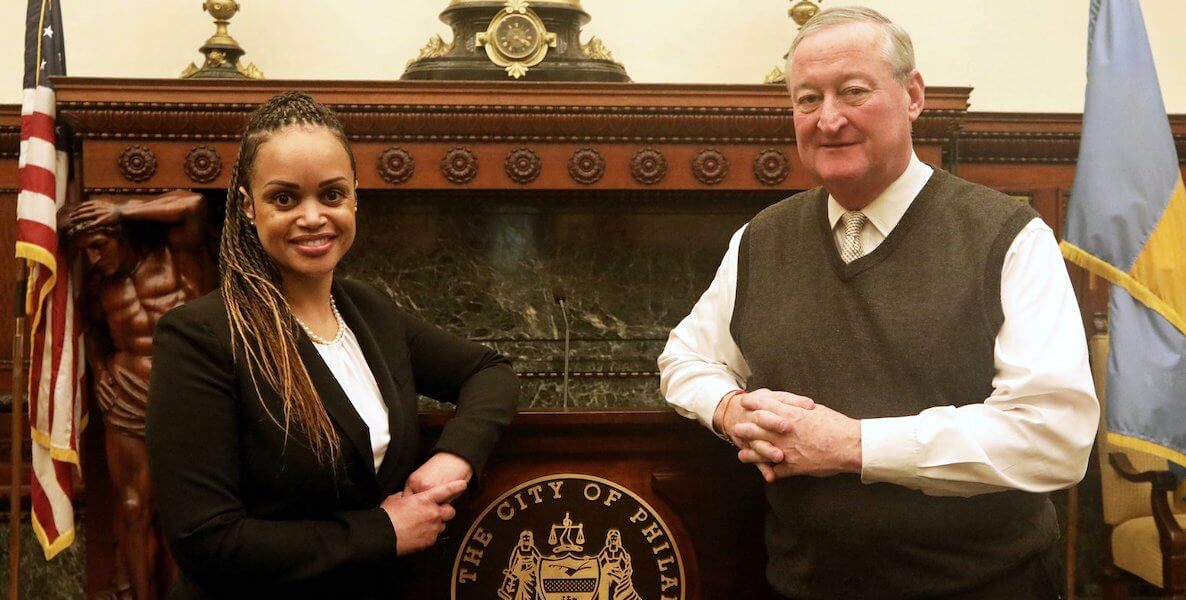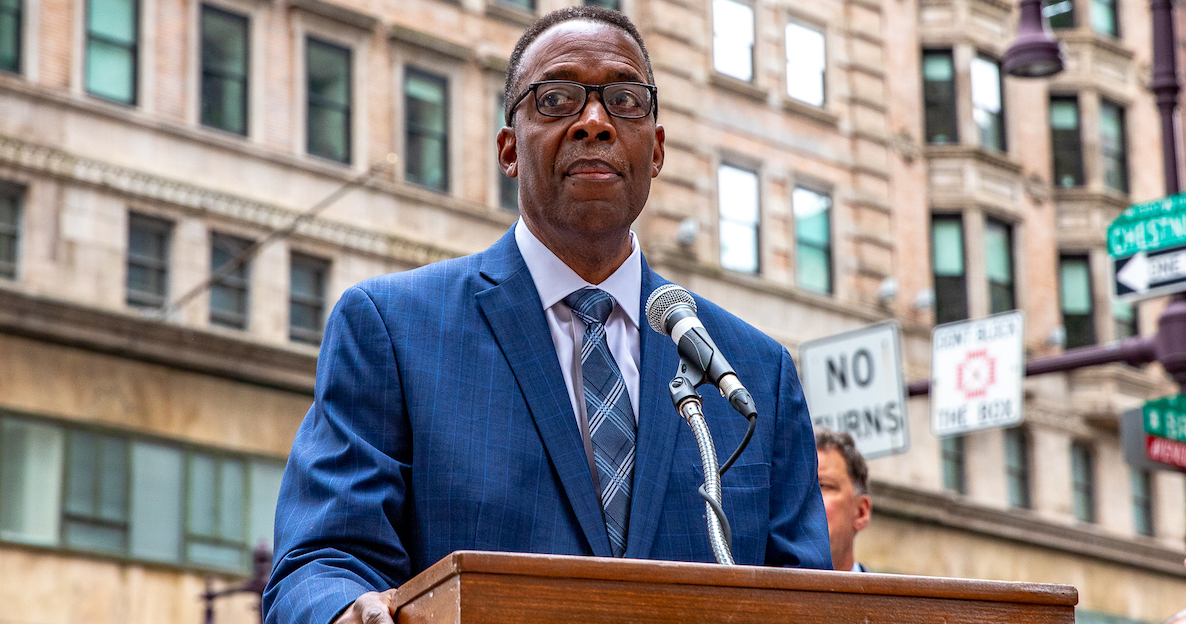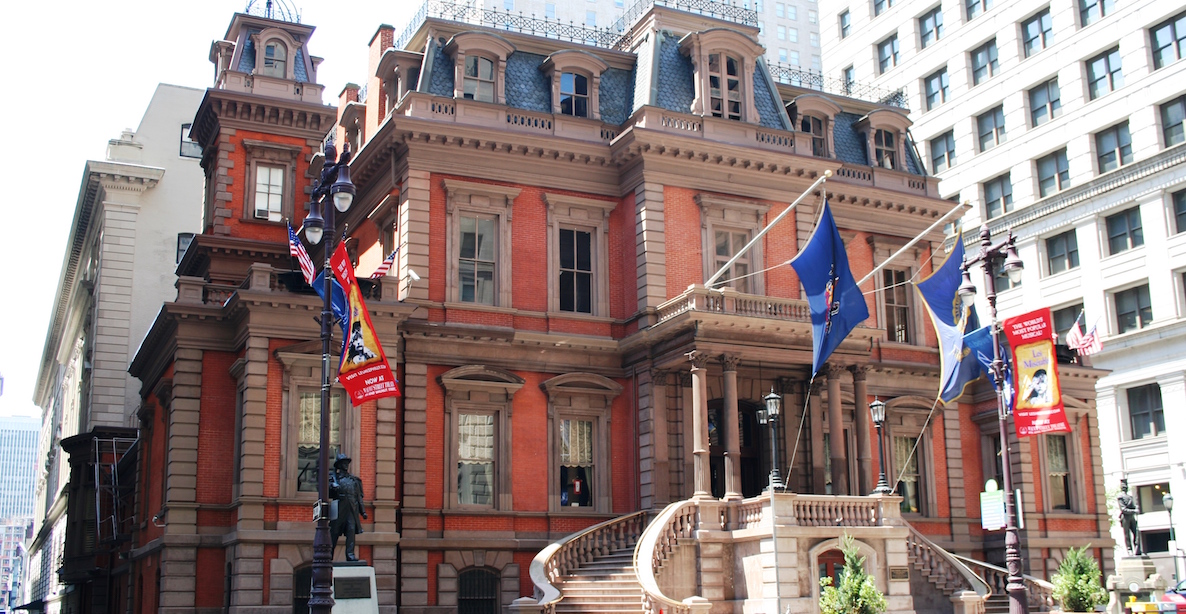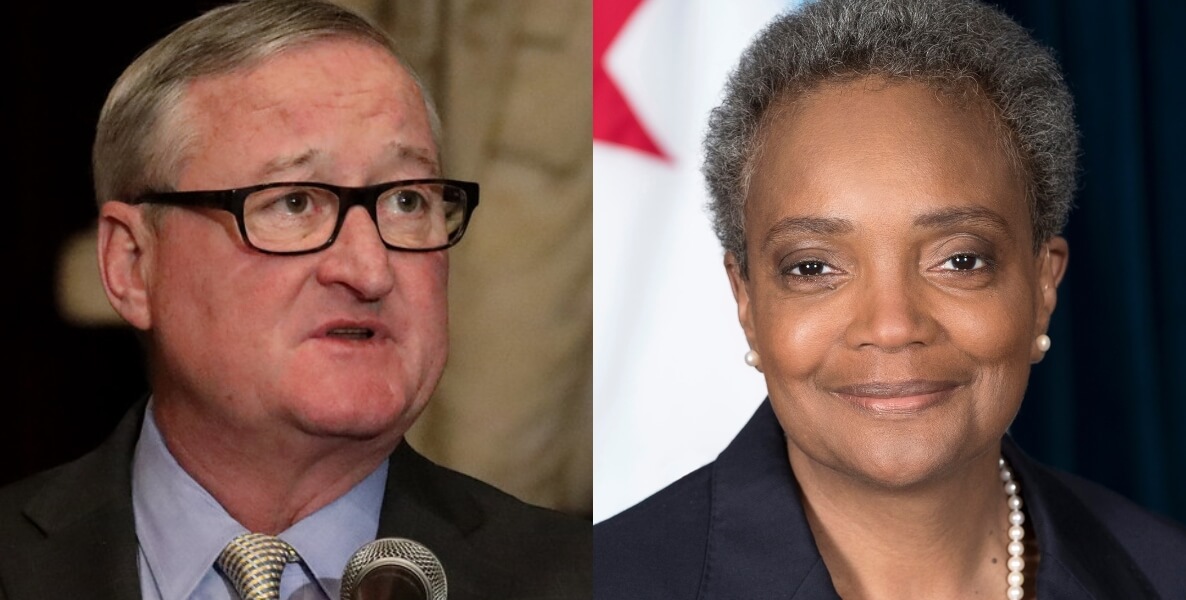![]() A couple of weeks ago, there was a disturbingly revealing moment during one of Mayor Kenney’s daily press conference updates on the city’s pandemic response.
A couple of weeks ago, there was a disturbingly revealing moment during one of Mayor Kenney’s daily press conference updates on the city’s pandemic response.
The mayor had rightly complained that too many Philadelphians—particularly young ones—weren’t observing social-distancing guidelines.
That prompted a reporter to ask Health Commissioner Thomas Farley, who does much of the city’s talking during these events, if any consideration had been given to launching a Public Service Announcement (PSA) campaign in an effort to change public behavior.
“Those tend to run at 2am, when no one’s watching,” Farley said, going on to explain that, instead, the administration was relying on the news media to get the word out about the need to stay at home and keep our distance from each other.
It was a stunningly analog moment. The notion that a PSA in 2020 is relegated to late-night TV seems particularly antiquated. Has the administration ever heard of this thing called the Internet?
Two weeks ago, I wrote about political leadership in the age of coronavirus. I focused on communication skills and, in relation to Kenney, the need to be inspirational during crisis.
![]() But we also need something broader: A vision that acknowledges that the old rules no longer necessarily apply, a willingness to pivot from the tried and true, an embrace of trying new things. It has ever been thus; think of FDR during the Great Depression, calling for “bold, persistent experimentation.” That’s often leadership’s job one when the mission involves leading a populace toward behavior change.
But we also need something broader: A vision that acknowledges that the old rules no longer necessarily apply, a willingness to pivot from the tried and true, an embrace of trying new things. It has ever been thus; think of FDR during the Great Depression, calling for “bold, persistent experimentation.” That’s often leadership’s job one when the mission involves leading a populace toward behavior change.
Elsewhere, there are examples of leaders who get this, who are embracing new ways to break through the noise, rather just passively relying on the same-old, same-old modes of messaging. The best example is Chicago Mayor Lori Lightfoot, who continues to kill it (with the exception of having been outed for violating social-distancing rules by getting a haircut). Still, at roughly the same time that the Kenney administration was poo-pooing the power of a PSA, Lightfoot released a comedic #StayHomeSaveLives video on Twitter that promptly went viral.
For good or ill, we live in a time where Kim Kardashian enjoys outsize influence over criminal justice reform policy, and where uproarious curmudgeon Larry David’s support for social distancing reaches far more people than any mayoral proclamation.
Unlike Kenney, Lightfoot gets this. She has become a pop-culture phenomenon herself. After she closed the city’s parks and waterfront, a “Where’s Lightfoot?” meme took off on social media, featuring Photoshopped images of her unleashing her death stare from iconic city landmarks.
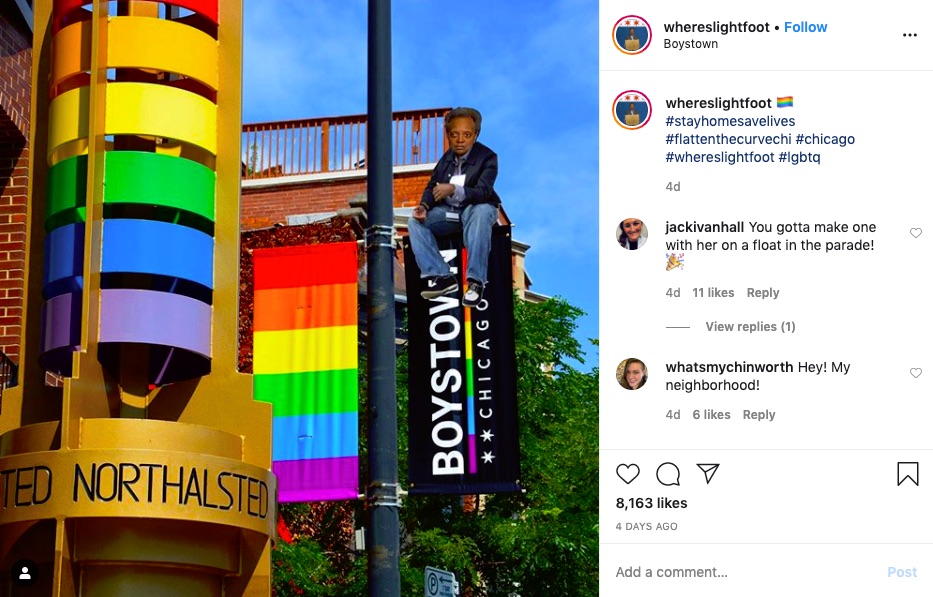
How leaders say something matters, but so does what they say. Sometimes, you have to say unpopular things. Leveling with those you would lead about the tough times ahead—rather than “cheerleading for the country” as the narcissist-in-chief has defined his job—might be hard, but it’s the only way to build trust and credibility.
This past week, it appeared—but only appeared—that Mayor Kenney had met this leadership test. Due to the coronavirus, the mayor announced he was scrapping his $5.2 billion budget proposal, which represented a historic 25-percent spending increase over the life of his mayoralty. Facing decisions “the likes of which have never been needed,” a new budget is in the works, to be presented to Council May 1, that will, the mayor warned, impact city services. “It’s not going to be pleasant,” he said.
First, we need more information about the size of the hole Philly may be facing. Yes, according to the state fiscal watchdog PICA, the city could see a loss of up to $400 million in revenue this quarter alone. That’s roughly equivalent to the city’s entire rainy day fund.
Sometimes, you have to say unpopular things. Leveling with those you would lead about the tough times ahead—rather than “cheerleading for the country” as the narcissist-in-chief has defined his job—might be hard, but it’s the only way to build trust and credibility.
But how much of that is due to the fact that the city rightly followed the federal government’s lead and extended the deadline for the payment of Business Income & Receipts Taxes (BIRT) and the Net Profits Tax to July 15? Kenney may get points for starkly laying out the problem, but has he done so in full context?
Either way, how the mayor addresses the coming fiscal hole will determine whether he’s leading or spinning. Mayor Kenney has a history of making political, rather than good government, decisions. When, a day after warning the city that Covid-19 threatens city services, the mayor announces a one-year labor deal with the city’s white-collar workers that includes a two-percent raise and bonuses, one has to wonder if his budgetary rhetoric is political or reform-minded.
What a good government approach to the Covid-19 financial crisis would look like:
Sacrifice Your Pet Programs First
Before taking away services from citizens whom the city has taxed at a higher rate than in any other city this side of Bridgeport, Connecticut, the mayor ought to start by pulling the plug on the billions in discretionary spending he has added. Remember, Kenney inherited a government that spent $3.8 billion a year and the budget he’ll now be reworking was for $5.2 billion. It’s great that the mayor has recognized that the party is over. But now it’s up to him to clean up his part of the mess before asking you to pitch in.
That will require Mayor Kenney coming face to face with a sober new reality for his second term. The city, like the country, will need to start over. His spending should reflect that. If that means reallocating the proceeds of his cherished beverage tax in order to help spare painful cuts to, say, school funding, so be it.
Enact Zero-Based Budgeting.
Candidate Jim Kenney in 2015 promised to govern using zero-based budgeting, an innovative way to insure that city governments are built commensurately to need.
![]() Here’s how it works: Rather than just submitting an annual request for a percentage raise in their budgets, department heads first memorialize in paper their core mission. And then, each year, they start from zero and build a budget to meet that mission. When current Attorney General Josh Shapiro chaired the Montgomery County Commissioners he instituted a zero-based system and promptly turned around a $10 million deficit and a $49 million structural deficit. The exercise exposes bloated spending, expenditures that have found their way into the budget in response to political claims, and the inevitable residue of mission creep through the years.
Here’s how it works: Rather than just submitting an annual request for a percentage raise in their budgets, department heads first memorialize in paper their core mission. And then, each year, they start from zero and build a budget to meet that mission. When current Attorney General Josh Shapiro chaired the Montgomery County Commissioners he instituted a zero-based system and promptly turned around a $10 million deficit and a $49 million structural deficit. The exercise exposes bloated spending, expenditures that have found their way into the budget in response to political claims, and the inevitable residue of mission creep through the years.
As a candidate in 2015, Kenney not only campaigned on zero-based budgeting, he put a number to it: It would take $90 million out of the budget, dollars that he would redirect to pre-K. Of course, once he was elected, zero-based budgeting fell by the wayside. Why? Because, in its budgetary transparency, zero-based budgeting calls for leaders to confront those with special interest claims on public dollars. It’s a heavy political lift, in other words. Well, do these times call for heavy political lifts, or not?
Manage Your Way to Efficiency.
All you need to know about the way your city government is managed was contained in a recent report from Controller Rebecca Rhynhart: Mayor Kenney has added nearly 1,000 workers to the city workforce at the same time that overtime costs have exploded.
This ought to be a red flag connoting that no one is really in charge when it comes to managing the levers of government: In reasonably-run governments, when full-time workforces shrink, overtime justifiably rises. In governments where bloat and waste rule the day, however, full-time workers and overtime simultaneously expand, which is the story of seven of 11 of our biggest city departments. Reading Rhynhart’s report is like reading a science fiction novel, only in this story the giant wrecking ball of a monster that keeps growing and marauding is a municipal government.
There are estimates that reforming runaway overtime alone could save $40 million per year. What are the chances that’s in the works?
Will Mayor Kenney be the pol who studied at the knee of ultimate insider Vince Fumo, or will he make his fiduciary responsibility to the taxpayer paramount? Will he continue to bloat government or champion change?
And how about the adding of 1,000 workers? Philadelphia lost a quarter of its population the last five decades, yet only trimmed city worker rolls by all of five percent during that time. Many city and state governments reacted to our last crisis—the Great Recession—by right-sizing their workforces. Phoenix, for example, eliminated 1,300 city jobs. Philly? We laid off 58 workers. Then, as now, we were addicted to the machine-era notion of local government as a type of job mill.
Become A Kaizen Leader.
This may be a stretch for a career pol like Jim Kenney, but he’d do well to brush up on Kaizen, the Japanese business philosophy of continual improvement. It’s a system of identifying problems and testing improvements. Achieving the goals of Kaizen means changing an organization’s culture such that, every day, everyone in it consciously does something to make the team better. Scorecards are filled out and weekly reports filed by employees at every level—from the new hire to the CEO—chronicling each and every incremental improvement each day. It’s a strategy that requires peer-to-peer accountability, and, ultimately, a leader willing to be held accountable for the dynamic changes that emerge from a culture of daily, incremental ones.
![]() Arguably, our last Kaizen mayor was Ed Rendell, who, in the ‘90s—to cite just one example—established an internal “Productivity Bank.” Funded by the proceeds of the bonds that created PICA, it made loans to city departments that came up with initiatives that “reduce costs, increase revenues and/or enhance services, produce operational efficiency, evidence sound business planning, and help promote a strategic approach to the way City government conducts its business by encouraging innovation, accountability, and entrepreneurship.”
Arguably, our last Kaizen mayor was Ed Rendell, who, in the ‘90s—to cite just one example—established an internal “Productivity Bank.” Funded by the proceeds of the bonds that created PICA, it made loans to city departments that came up with initiatives that “reduce costs, increase revenues and/or enhance services, produce operational efficiency, evidence sound business planning, and help promote a strategic approach to the way City government conducts its business by encouraging innovation, accountability, and entrepreneurship.”
I’ve been thinking of Kaizen a lot lately, because it seems to me its two overarching principles—the pursuit of continual improvement and accountability—are precisely what’s missing in our city government today. Before you ask taxpayers to bail out their government yet again, doesn’t it make sense to gain their confidence by giving them a government that works for them?
Mayor Kenney is right to brace us for hard times. But how he handles those hard times on our behalf—will he be the pol who studied at the knee of ultimate insider Vince Fumo, or will he make his fiduciary responsibility to the taxpayer paramount? Will he continue to bloat government or champion change?—will be the real test of his leadership.






